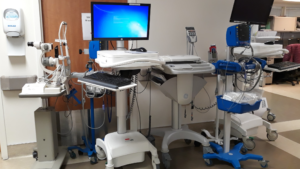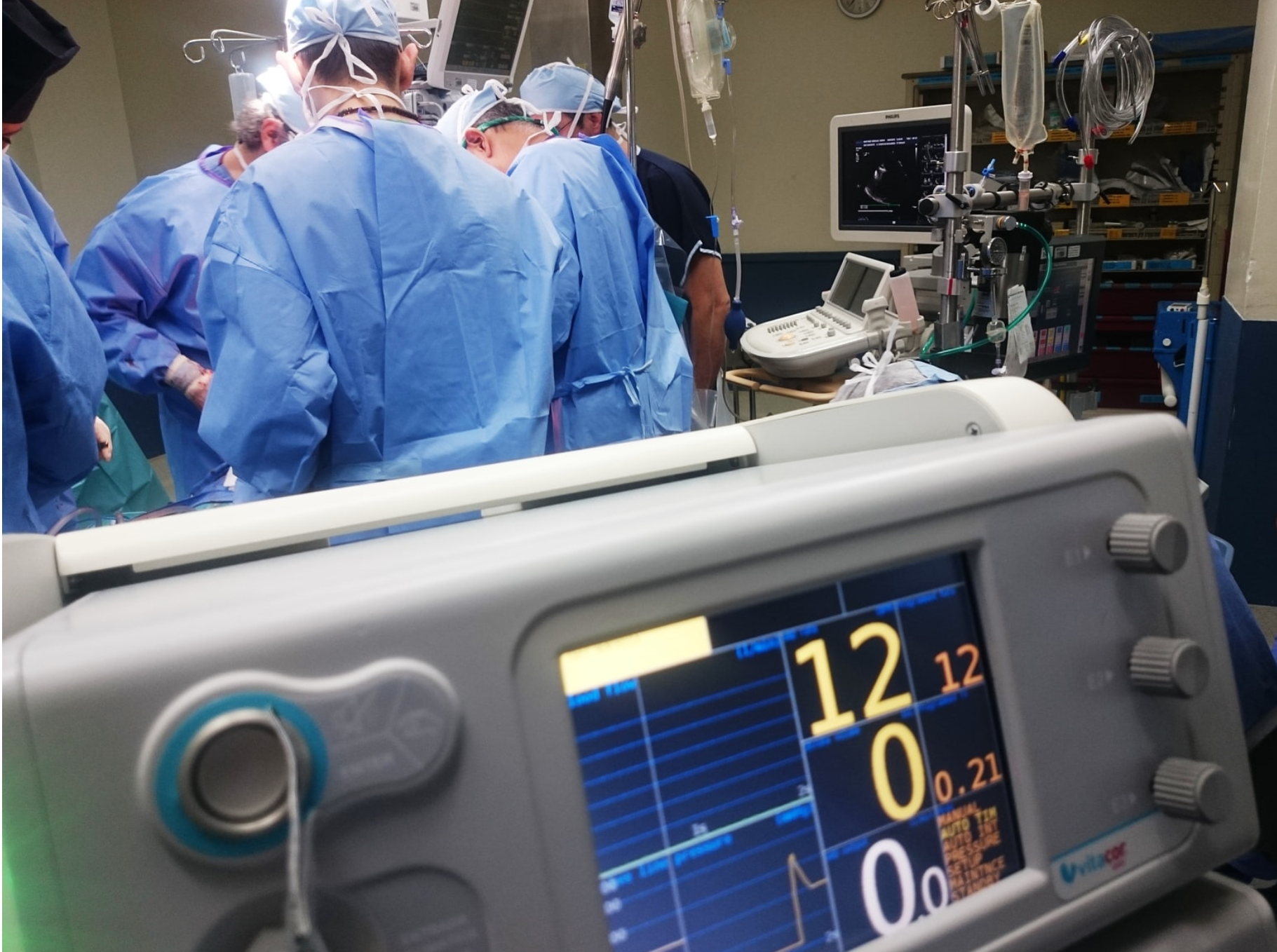
Why Healthcare Needs Proactive WiFi Assurance

Any issue with a wireless network that causes decreased service, reliability, and security can result in higher patient risk, interrupted care coordination, decreased productivity, and user frustration. Healthcare facilities can have tens of thousands of connected devices providing mission-critical care in every department. Reliable and consistently strong network performance isn’t a nice-to-have commodity but a required resource. Anything that causes network downtime or connectivity issues can have catastrophic consequences.
Common Causes of WiFi Issues
There’s no one-size fits-all answer as to the cause of issues. Wireless networks are dynamic ecosystems, changing throughout the day as devices connect and disconnect, patients and providers move throughout a facility, and applications and software update. Any change can cause issues. The 4 most common causes of WiFi issues in healthcare are:
- Building Design: from older buildings not designed with WiFi in mind, to radio frequency (RF) interference from microwave ovens and MRI machines, deploying a network that provides strong and consistent service to every corner of a healthcare facility can be challenging.
- Unpredictable Density: it can be difficult to predict when and where people will congregate in a hospital. Network engineers have to carefully balance having “just enough” APs without getting stuck with too many.
- Constant Introduction of New Devices: this can lead to too many devices competing for bandwidth and airtime, as well as interoperability and interference issues.
- Around the Clock Roaming: all wireless medical devices must remain connected to the network at all times. There must be a seamless handoff from AP to AP with no dead zones as providers and patients move between rooms and floors.
Depending on what network problems facilities experience, they could see:
- A loss of real-time data from IoT patient monitors
- Increased website or server response times – this can cause issues for patients trying to check-in or schedule appointments online, as well as problems for providers trying to coordinate care or review health records
- Unreachable applications – network downtime can prevent providers and staff from accessing mission-critical resources
- Slow internet can cause employees to lose up to a week of productivity each year (example: waiting for file uploads and downloads to complete)
Solving Problems Reactively
Even knowing common causes of WiFi issues, IT teams still more than have their work cut out for them when it comes to resolving issues. There are innumerable possibilities for the root cause of a problem, such as:
- Is the network overloaded?
- Did a software upgrade cause interoperability issues? Or, conversely, is there infrastructure that should be upgraded?
- Does the problem lie with an access point (AP), a server, an application, a device, or something else entirely?
Defining the root cause of the problem can be incredibly time-consuming, which means patients and staff are left waiting even longer for the eventual resolution. IT teams work tirelessly to quickly resolve reported issues – but they don’t have to be stuck in reactive mode. The solution? Proactive WiFi Assurance.
Optimizing Networks and Patient Experience with Proactive Solutions
With proactive solutions, problems are identified before they are problems. This gives IT the power to resolve issues before end users are affected, heading off any negative consequences and streamlining a network to provide unparalleled service. Using artificial intelligence and predictive analytics, proactive solutions increase WiFi reliability with optimized network performance and quality.
Wyebot’s award winning, patented Wireless Intelligence Platform (WIP) uses next-generation predictive analytics to identify potential threats or problems and keep WiFi networks up and running reliably and efficiently. Facilities that use WIP experience:
- 90% decrease in Mean-Time-to-Resolution
- 50% decrease in WiFi problem tickets
- 80% decrease in remote site visits
WIP provides complete WiFi ecosystem visibility, a synthetic network test suite, security breach detection, and historical device forensics. These capabilities work together, proactively and 24/7, to eliminate WiFi worries from healthcare facilities.
Complete WiFi Ecosystem Visibility: WIP automatically classifies all APs and clients using device fingerprinting. It uses behavioral profiling and device pattern recognition to learn to recognize normal network behavior. At the first sign of any anomalies, IT is automatically alerted. WIP includes the root cause of the issue as well as actionable steps for resolution in the alert.
Synthetic Network Test Suite: Facilities can remotely diagnose and troubleshoot all issues, and run the entire suite of tests using WiFi 6 technology. Tests can be scheduled to run for consistent network monitoring, and IT is alerted in real-time if a test fails for any reason.
Historical Device Forensics: WIP automatically creates graphs that display trends over time with data on APs, client distribution, and airtime and client utilization. The graphs provide a visual representation of degrading network health, enabling efficient and effective capacity planning so that networks stay optimized into the future.
Security Breach Detection: WIP proactively notifies IT if there are any AP security breaches. It will automatically classify all detected APs as Mine, Known, Unknown, or Unauthorized, and send automatic alerts for any Unknown or Unauthorized APs.
Bring proactive WiFi Assurance to your healthcare facility today and rest assured that your wireless network will provide reliable and consistent service at all times.


